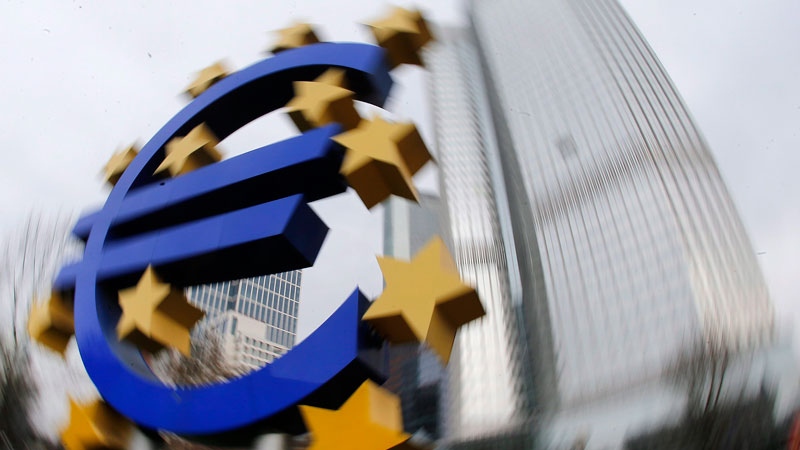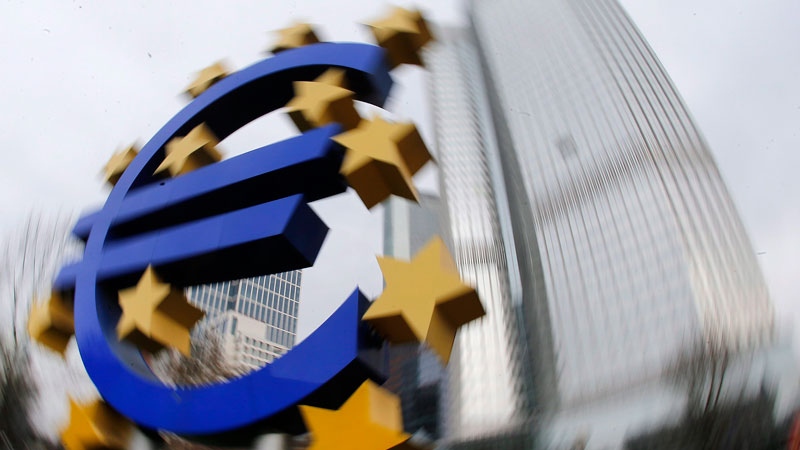

FRANKFURT, Germany –
European Central Bank President Christine Lagarde has the job of explaining why the bank isn’t raising interest rates despite record high inflation as it left its key economic stimulus programs in place.
The bank for the 19 countries that use the euro is moving more slowly than the U.S. Federal Reserve and the Bank of England in withdrawing support as economies rebound from the worst of the coronavirus pandemic.
The Fed has signaled it could start raising interest rates in March, while the Bank of England hiked rates on Thursday and in December. Lagarde has said a hike from her bank is unlikely this year.
Europe’s record 5.1% inflation in January raises questions about when the bank will raise rates, the typical antidote to inflation that’s too high. The bank says much of the recent inflation is from temporary factors such as high oil and gas and clogged supply chains and should ease this year.
THIS IS A BREAKING NEWS UPDATE. AP’s earlier story follows below.
FRANKFURT, Germany (AP) — The European Central Bank’s policymakers are facing record inflation as they decide monetary policy Thursday for the 19 European Union countries that use the euro.
And that’s a big deal because their job under the EU treaty is keeping prices stable.
Here are key themes facing bank President Christine Lagarde and the 24 other members of the governing council at their meeting:
RECORD PRICE RISES ARE PUTTING CENTRAL BANKERS ON THE SPOT: Annual inflation in the eurozone came in at 5.1% on Wednesday, the highest since 1997, when recordkeeping began ahead of the euro being established in 1999. Inflation is way above the bank’s goal of 2% that is considered best for the economy. And the usual medicine for high consumer prices is raising interest rates that influence borrowing costs.
BUT THE BANK HAS SIGNALED NO RATE HIKE THIS YEAR: Lagarde said at the Dec. 16 meeting that an interest rate hike was “very unlikely” this year. She has explained high inflation by pointing to factors that are likely temporary. One big reason is high oil and gas prices. Another is logjams that have arisen as supply chains struggle to cope with the sudden rebound of the global economy from the coronavirus pandemic. The bank sees inflation falling to 1.8% in 2023.
MARKETS ARE WATCHING TO SEE IF THE BANK ADJUSTS ITS STANCE: Analysts say Lagarde will likely acknowledge high inflation levels while trying to keep markets from thinking an earlier rate hike is coming. That would lead to rising borrowing costs and hold back the recovery just as eurozone economic growth is reaching pre-pandemic levels. One analyst, Andrew Kenningham at Capital Economics, thinks Lagarde might drop the “very” and stick with “unlikely” about rate hikes. She could talk about uncertainty regarding the course of inflation and underline the need to remain flexible.
ANALYSTS THINK THE BANK WILL STAY WITH ITS ROAD MAP FOR NOW: Lagarde has said the economy still needs low rates but has recovered enough for the bank to phase out its emergency, 1.8 trillion euro pandemic stimulus. That bond purchasing program is to end in March while some of it will continue under another program. The support could then be phased out by the end of this year, setting up a rate increase sometime in 2023. Rates are at record lows: One key benchmark is at zero and another is at minus 0.5%.
THE EUROPEAN CENTRAL BANK IS WELL BEHIND THE U.S. AND UNITED KINGDOM: The U.S. Federal Reserve has signaled it could start a series of rate increases as early as March to counter inflation, which is at a 40-year high of 7%. One reason the Fed’s ahead is that the U.S. recovery is farther advanced and needs less support from low borrowing costs, with the economy some 3% bigger than it was before the pandemic. Europe is just now reaching pre-pandemic levels of output. The Bank of England raised rates in December and is expected to raise them again at its meeting Thursday.
INFLATION IS HITTING HOME FOR CONSUMERS: Households are seeing higher utility bills and fuel costs, leaving them with less money to buy other things. That has been an additional drag on the European economy on top of the COVID-19 wave blamed on the omicron variant. Gasoline prices in Germany have reached a record of 1.71 euros per liter, or the equivalent of $7.31 per gallon.
07:55ET 03-02-22


